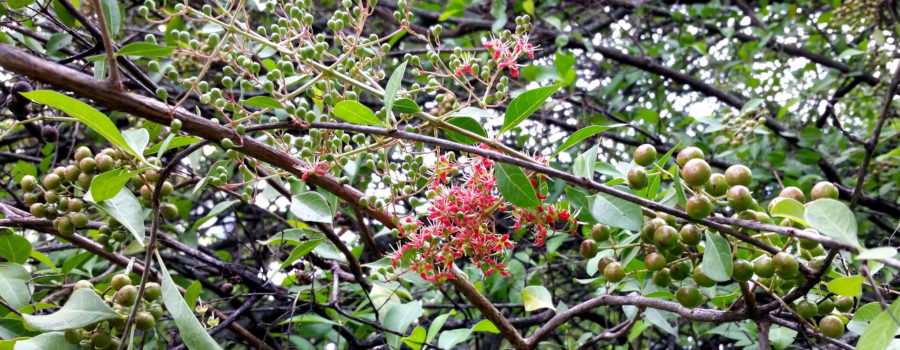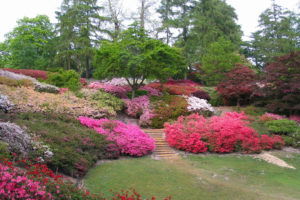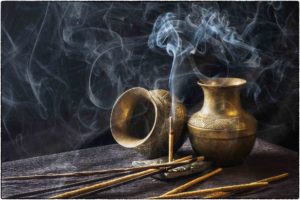The Work of the Master
God is an Artist, and His garden an expression of harmony and balance. Such traits as aesthetic, orderliness and taste emanate from its originality and flow onward to bless the heart and marvel the mind. This beauty, so marvelously expressed in the Song of all songs, is not a mere poetic fantasy. God wants to produce it in us so we may mirror His comeliness and exude His holiness.
Actually, the love story between the believer and his Beloved should be the most idyllic experience life can possibly offer. And happily, it can be lived amidst storms and tragedies as amidst tranquility and leisure.
The Fragrant Henna
In my last post, I wrote about the first fruit mentioned by the Beloved, namely, the pomegranates. This beautiful fruit, so pleasant to the Beloved, should be a product we yield abundantly by doing our common tasks heartily (Colossians 3:23). For a grateful and willing heart provides the perfect soil for this plant to flourish and thrive.
The second plant the Beloved mentions is the henna (Lawsonia inermis); a small tree that is considered one of the plants of paradise in Jewish writings. The King James Version—faithful to the Hebrew word כּפר (kopher)—uses the word camphire (not to be confounded with camphor as some dictionaries do). Yet most translations use the English word ‘henna’ which is taken from the Arabic word حِنَّاء ḥinnāʾ.
The flowers of the henna tree dissipate an aroma that can be detected from quite far. In the Song of Solomon, the bride refers to her Beloved as a cluster of henna bloom (Song of Solomon 1:14). Likewise, the Beloved compares the bride to a garden where fragrant henna is flourishing (Song of Solomon 4:13). Like roses today, the henna bloom was considered a flower of love, and its blossoms have been used in perfumery since ancient times.
 The leaves of the henna tree are valuable as well. They are employed to make a dye used to embellish the hands and feet with artistic designs and to alter the color of the hair. It is believed that such verses as: “Your hair is like a flock of goats going down from Mount Gilead” (Song of Solomon 4:1 also 6:5) make allusion to the brown-orangey color so common among goats and reminiscent to hennaed hair.
The leaves of the henna tree are valuable as well. They are employed to make a dye used to embellish the hands and feet with artistic designs and to alter the color of the hair. It is believed that such verses as: “Your hair is like a flock of goats going down from Mount Gilead” (Song of Solomon 4:1 also 6:5) make allusion to the brown-orangey color so common among goats and reminiscent to hennaed hair.
The tree grows in a stable semi-arid climate. Below five degrees it dies; bellow eleven degrees it does not develop, and below twenty degrees it does not blossom. It yields its best products between 35 and 45 °C (95 and 113 °F). All this to say it can only thrive in a stable and fervent heart. The Christian constantly fluctuating from fervency to lukewarmness, or from commitment to halfheartedness will have little henna is his garden, and surely, the scent of its flowers won’t be found there; a scent so appreciated by the Beloved.
If the pomegranate teaches us the importance of grace and faithfulness in everyday life, the henna teaches the value of stability and fervency. And if all this seems too symbolic for your taste, you will surely recognize that stability and fervency convey beauty, usefulness and fragrance—in brief, the characteristics of the henna tree.
Spikenard
“Your plants are an orchard of pomegranates with pleasant fruits, fragrant henna with spikenard” (Song of Solomon 4:13).
The third plant mentioned by the Beloved is the spikenard. The plant can reach a meter in height and is especially valued for its root (or rhizomes) from which a very costly aromatic oil is produced. This was the oil Mary used to anoint Jesus’ feet.
Then Mary took a pound of very costly oil of spikenard, anointed the feet of Jesus, and wiped His feet with her hair. And the house was filled with the fragrance of the oil” (John 12:3).
In verse five we read that half a kilo was valued to three hundred denarii, about one-year wages for a worker. Spikenard was also used in the fabrication of high quality incense.
The interesting thing for us is that the spikenard (nardostachys Jatamansi) grows in the Himalayas in high altitude between 3,000 and 5,000 meters. When the Beloved says that our garden produces spikenard, He elevates us to these sublime heights. But such heights imply that God will permit difficult experiences to cross our way. He will lead us in places where the air is thin and the wind cutting. There will be cold seasons and frigid nights, severe frost and chilling moons. Hence the importance of trust and fervor, for where there is confidence there is ardor as well as fire.
Without these frigid periods, there could be no spikenard. But the lover truly loves, and love follows the Master to such productivity. The good news is that the spikenard sprouts and blooms quickly, which means God will not leave us in the cold nights for too long. As soon as the magnificent amber-colored oil is produced He will take us under His thick mantle, there where the warmth of His breath revives the soul.
Brethren! Let us offer ourselves to the Great Gardener. Let us yield the product of passion and trust, for the Beloved surely deserves our spikenard.
If you think this post can help somebody else you can share it with the options presented bellow.













